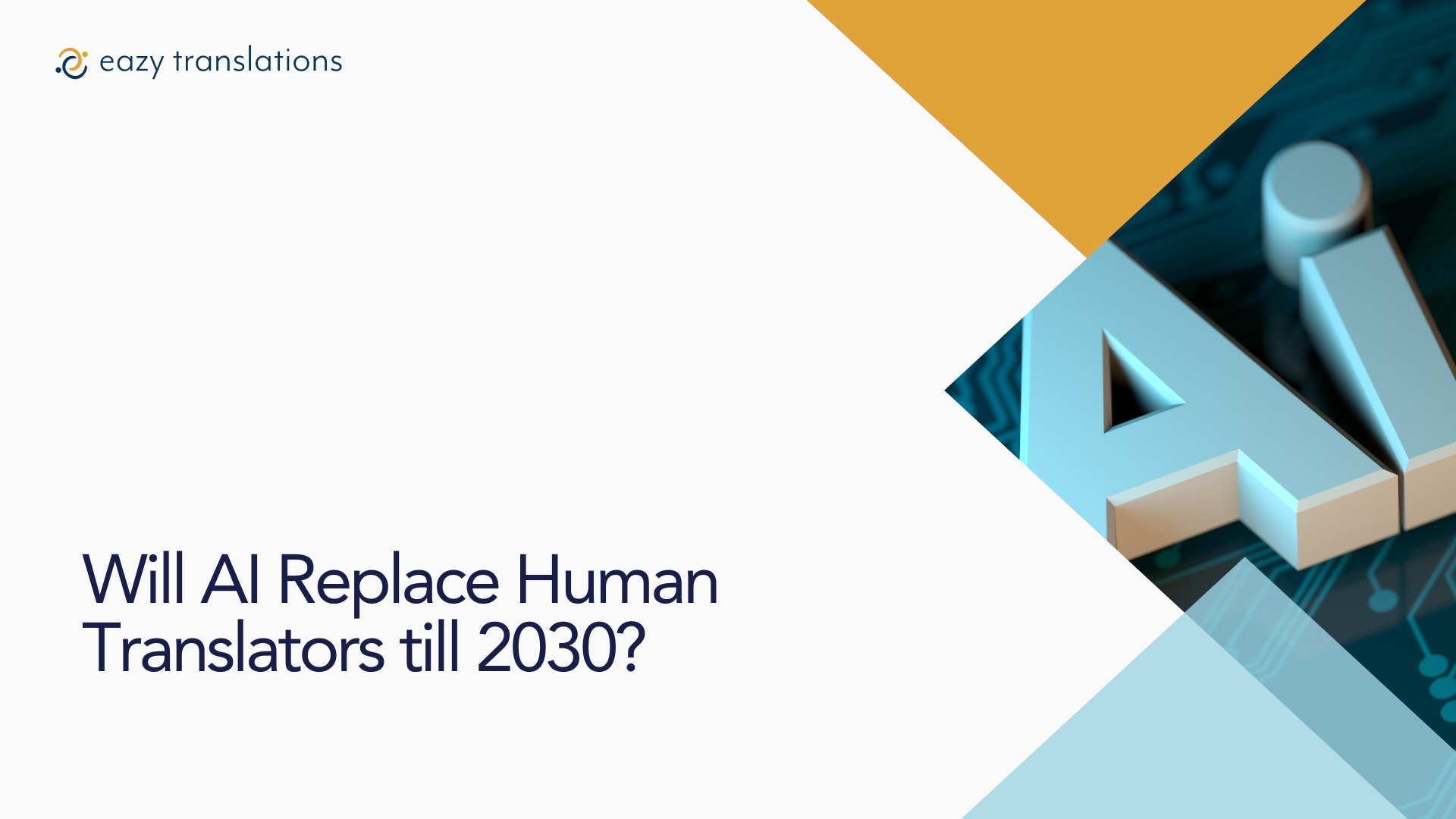The world of translation is undergoing a revolution. Artificial intelligence (AI) is making significant strides in machine translation (MT), blurring the lines between human and machine capabilities. As AI technology continues to evolve, a crucial question arises: will AI replace human translators entirely by 2030?
The answer, like most things in technology, isn’t a simple yes or no. Here, we’ll delve into the current state of AI translation, explore its strengths and limitations, and assess the future of human translators in the face of this technological advancement.
Contents
The Rise of Machine Translation
Machine translation has come a long way since its early, clunky days. Modern AI-powered MT engines can translate vast amounts of text with impressive accuracy, particularly for factual content and common phrases. This technology has several advantages:
- Speed: AI can translate text in a fraction of the time it takes a human translator. This is particularly valuable for urgent translation services, where quick turnaround times are critical.
- Cost-Effectiveness: Machine translation is generally cheaper than human translation, making it a viable option for budget-conscious projects with less complex content.
- Accessibility: AI translation tools are readily available online and through mobile apps, offering convenient and on-demand translation solutions.
These advantages make AI translation a valuable asset, particularly for simple tasks and initial drafts. However, there are still significant limitations to consider.
The Limitations of AI Translation
Despite its advancements, AI translation isn’t perfect. Here’s why human expertise remains crucial:
- Nuance and Context: Language is full of nuances and cultural references that AI often struggles to grasp. Understanding context, tone, and cultural subtleties is essential for producing accurate and natural-sounding translations.
- Creativity and Adaptability: Machines struggle with creative tasks like transcreation, where the message needs to be adapted for a specific target audience. Human translators can adjust the tone, style, and even humor to resonate with the target culture.
- Subject-Matter Expertise: Specialized fields like legal, medical, or technical translations require deep domain knowledge beyond basic language proficiency. Human translators with expertise in the specific subject matter can ensure accurate and idiomatic translations that convey the intended meaning precisely.
- Quality Control and Editing: While AI translation is improving, it still produces errors, particularly with complex sentence structures, idioms, and culturally-specific references. Human editors are essential to ensure the final product is polished, error-free, and reads naturally in the target language.
These limitations highlight that AI translation, at its current stage, is best viewed as a powerful tool to assist human translators, not replace them entirely.
The Future of Human Translators: Collaboration and Specialization
The future of translation lies in a collaborative approach between humans and AI. Here’s how human translators will continue to play a vital role:
- Specialized Expertise: As mentioned earlier, subject-matter expertise remains crucial for translating complex and nuanced content. Human translators with specialized knowledge will continue to be in high demand, especially in technical, legal, and medical fields.
- Post-Editing and Quality Assurance: Experienced human translators will remain vital for editing and proofreading machine translations, ensuring accuracy, fluency, and adherence to specific style guides.
- Creative Content and Transcreation: Human expertise will be irreplaceable for creative tasks like transcreation, marketing copy, and advertising materials. Adapting content to resonate with a target audience requires human understanding of cultural nuances and emotional intelligence.
- Project Management and Client Communication: Human translators will continue to manage translation projects, working with clients to understand their needs, selecting the right technology, and ensuring delivery of high-quality translations.
Urgent Translation Services: When Human Expertise Matters
For urgent translation needs, especially those involving complex or sensitive content, human translation remains the gold standard. Here’s why human expertise shines in time-sensitive scenarios:
- Accuracy and Precision: In cases where errors can have significant consequences, the precision and accuracy of human translation are invaluable. Experienced translators can handle complex language and ensure the translated message conveys the exact meaning intended.
- Cultural Sensitivity: Urgent translations might involve culturally sensitive situations, where a nuanced understanding of the target audience is crucial. Human translators can navigate these situations effectively and avoid cultural faux pas.
- Confidentiality and Security: Urgent translations often involve sensitive information. Human translators understand the importance of confidentiality and adhere to strict security protocols to protect your data.
Conclusion: A Symbiotic Future for Humans and AI
While AI is revolutionizing the translation landscape, it’s important to remember that it’s a tool, not a replacement for human expertise. The future of translation lies in a collaborative approach. Human translators will continue to be essential for specialized tasks, creative content development, and ensuring the quality and accuracy of translations.





